MED-EL
Published Dec 10, 2014 | Last Update Jun 18, 2024
What Does a Waterproof Cochlear Implant Mean for You?
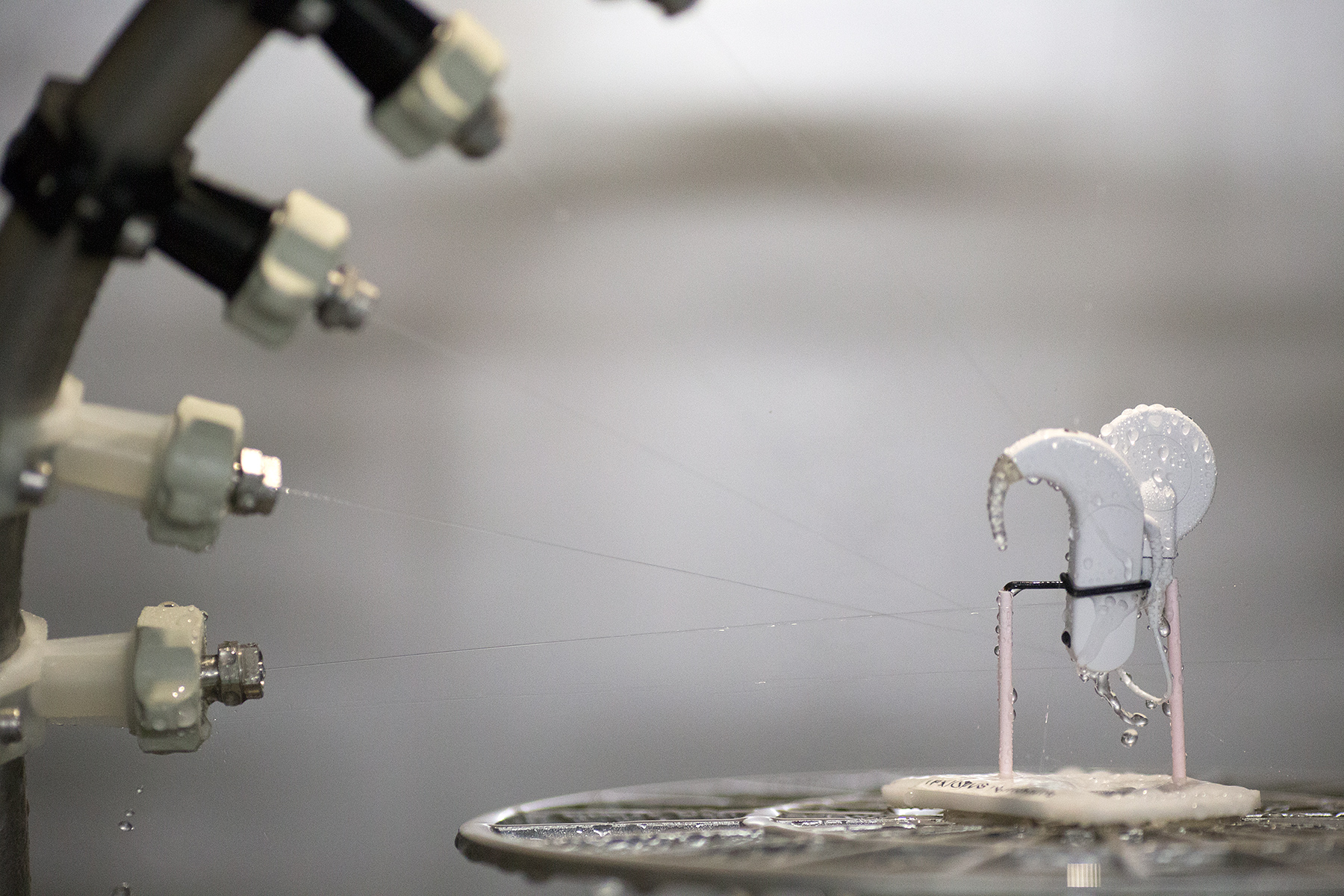
How can a cochlear implant recipient hear around under water? It’s with a water-resistant or waterproof cochlear implant system or accessory, like the new SONNET Audio Processor or WaterWear for RONDO.
The SONNET is officially rated as “water-resistant” and the WaterWear is “waterproof”. Because we know that these terms aren’t always straightforward, so we wanted to dive a little into how the terms are defined and what tests we run to get these ratings.
The Official Definitions
First, a quick overview of the official ratings for “water-resistant” and “waterproof”.
Like many ratings or measurements, there’s an international standard for water resistance: it’s called an Ingress Protection (IP) code. An IP code is a rating of an object’s resistance to solids like dust and liquids like water, and the only way that an object can get an IP rating is by passing standardized tests regulated by an international agency called the International Electrotechnical Commission.
This sounds a bit complicated, but following these regulations means that we test our audio processors and accessories in a way that’s standardized worldwide.
So, how did we test the SONNET and WaterWear for their dust and water resistance? Let’s head off to the testing room and see.
The IP Tests
Testing for Resistance to Solids
Now, what we actually do during the IP tests.
There are many different rooms and departments in our headquarters building that focus on different technical tests, and one of these rooms has what we need for IP testing. We have two machines here, one that tests for solids and one that tests for liquids.
This is the dust chamber. It’s a completely airtight chamber that gets filled with superfine talcum powder during the test. About half a kilogram of the powder gets blown all around the chamber for 8 continuous hours, covering absolutely everything in the chamber including the SONNET.
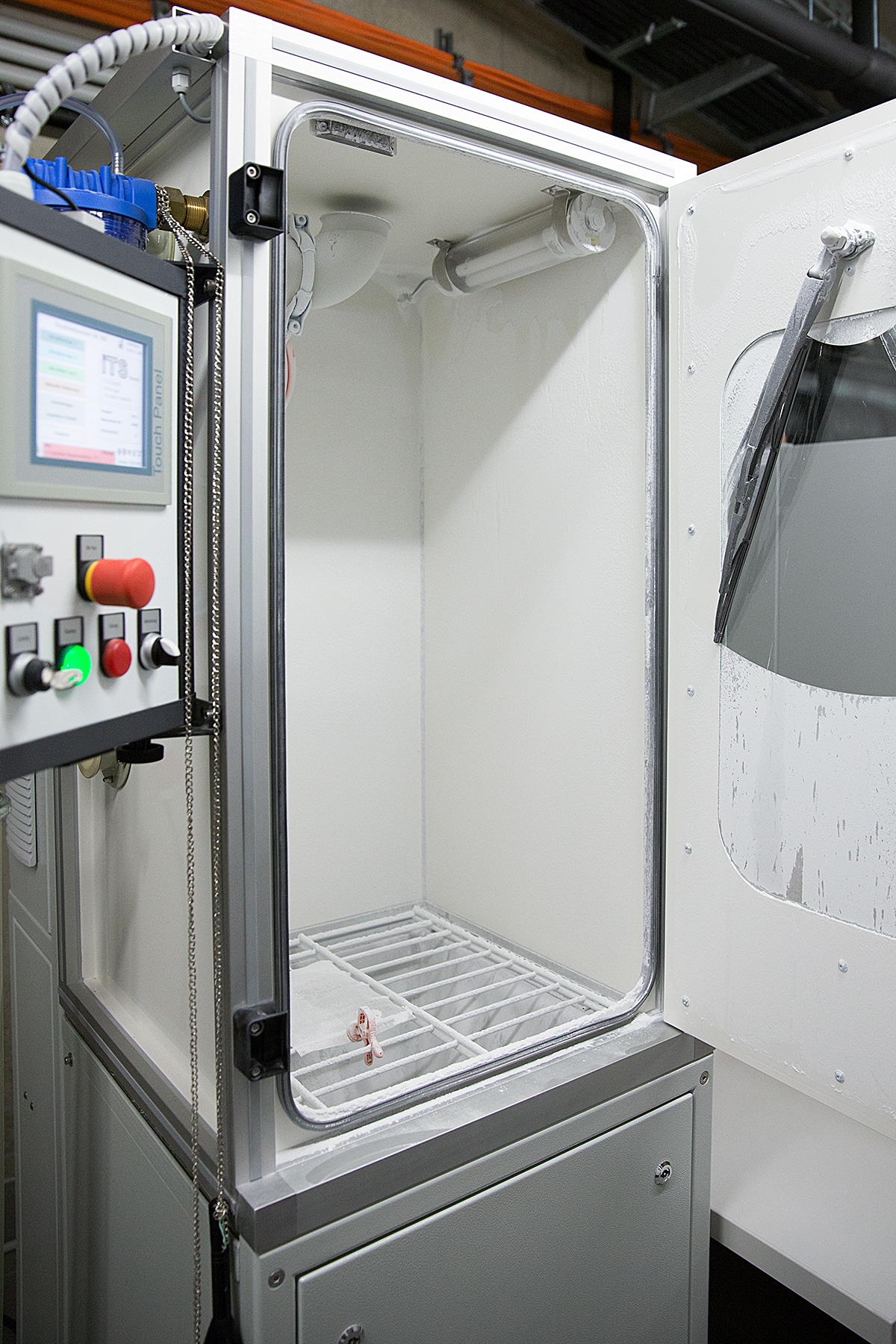
You might be familiar with talcum powder if you’ve ever had a baby, and if you are you know how small the powder is. To put it into perspective, each little spec of talcum powder is about 1/10th the diameter of a human hair: pretty small!
The machine uses so much talcum powder that we need use a special windshield wiper to wipe the windows every few seconds just to see what’s going on inside.
After the test ends, we open the chamber and remove the SONNET. Here’s what SONNET looked like after this round of testing:
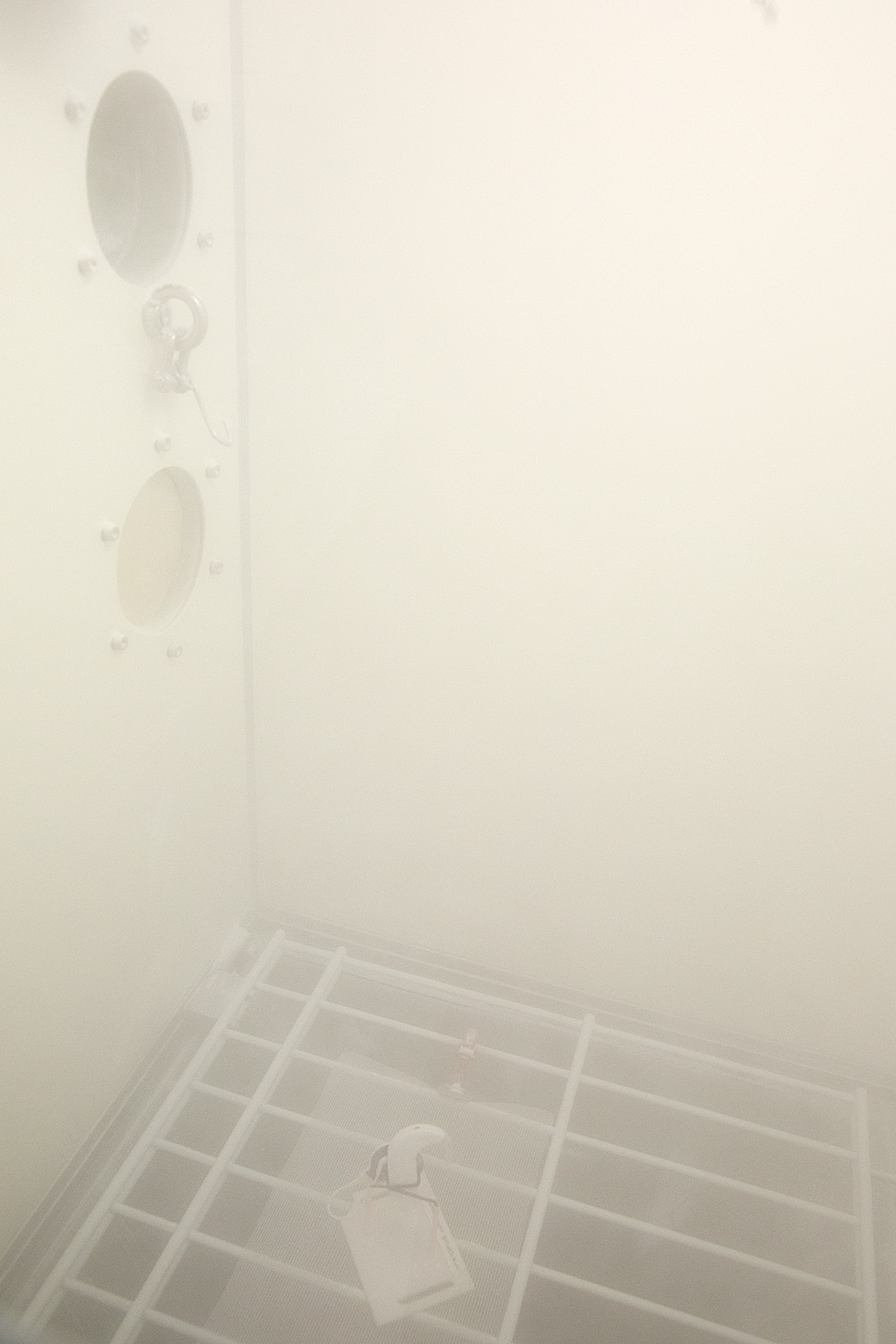
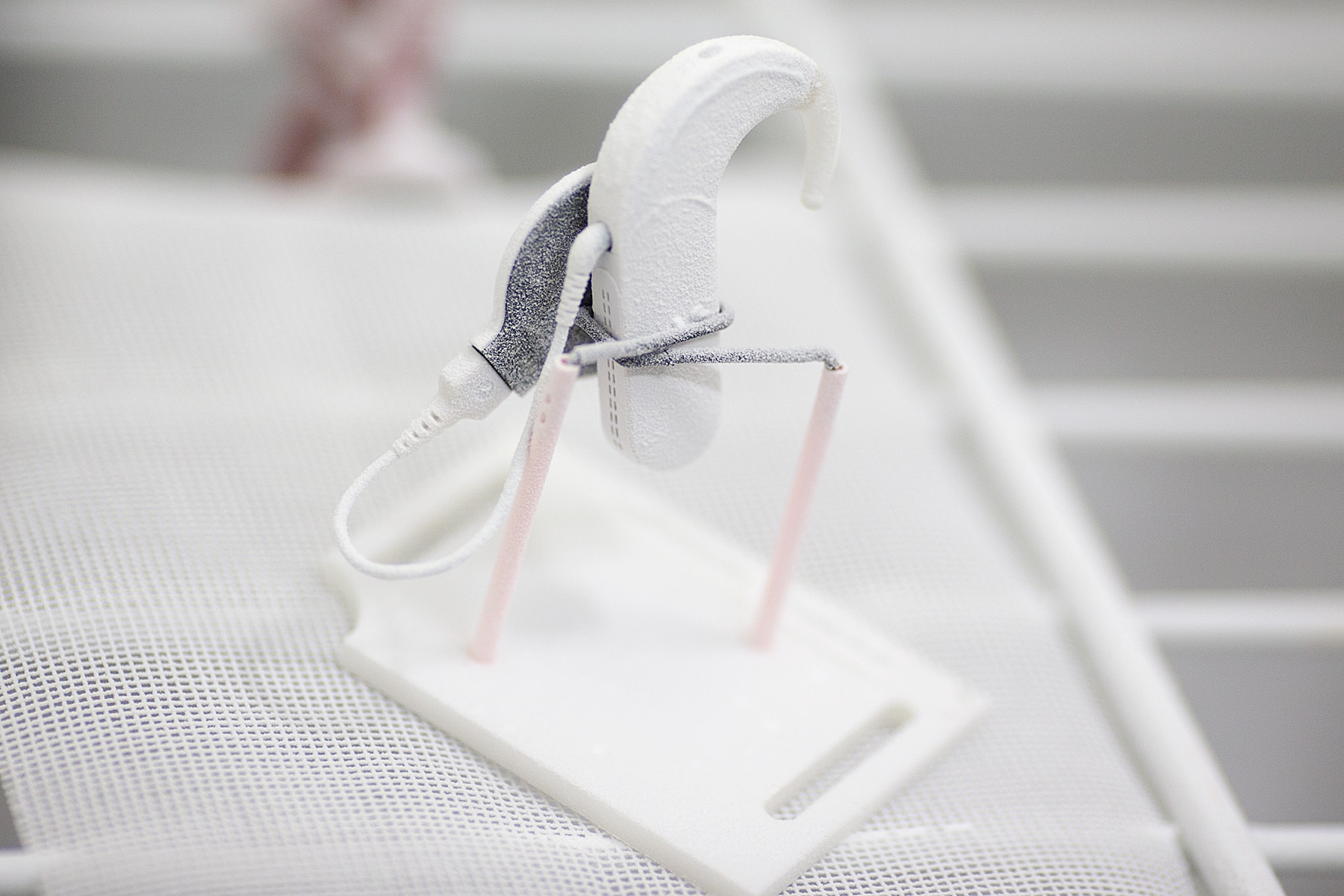
SONNET worked just fine even when covered with the talcum powder, and the talcum powder brushed right off. So, since SONNET passed this test we’re able to say that it has earned an IP dust resistance rating of 5.
Testing Water Resistance
On the other side of the room we’ve got the machine that tests SONNET for water resistance, the water splash chamber. It’s a watertight chamber that uses 13 nozzles to continually spray water at whatever object is sitting on the raised platform. The nozzles are on a curved arm that rotates back and forth, so they can spray SONNET from almost 360 degrees.
Here’s our testing expert, programming the machine to run SONNET through its IP water resistance test:

And here’s SONNET all prepared for the water resistance test, put right in the middle of the nozzles for maximum soakage. Every part of the SONNET is included in the test: the audio processor, battery pack, cable, and coil.
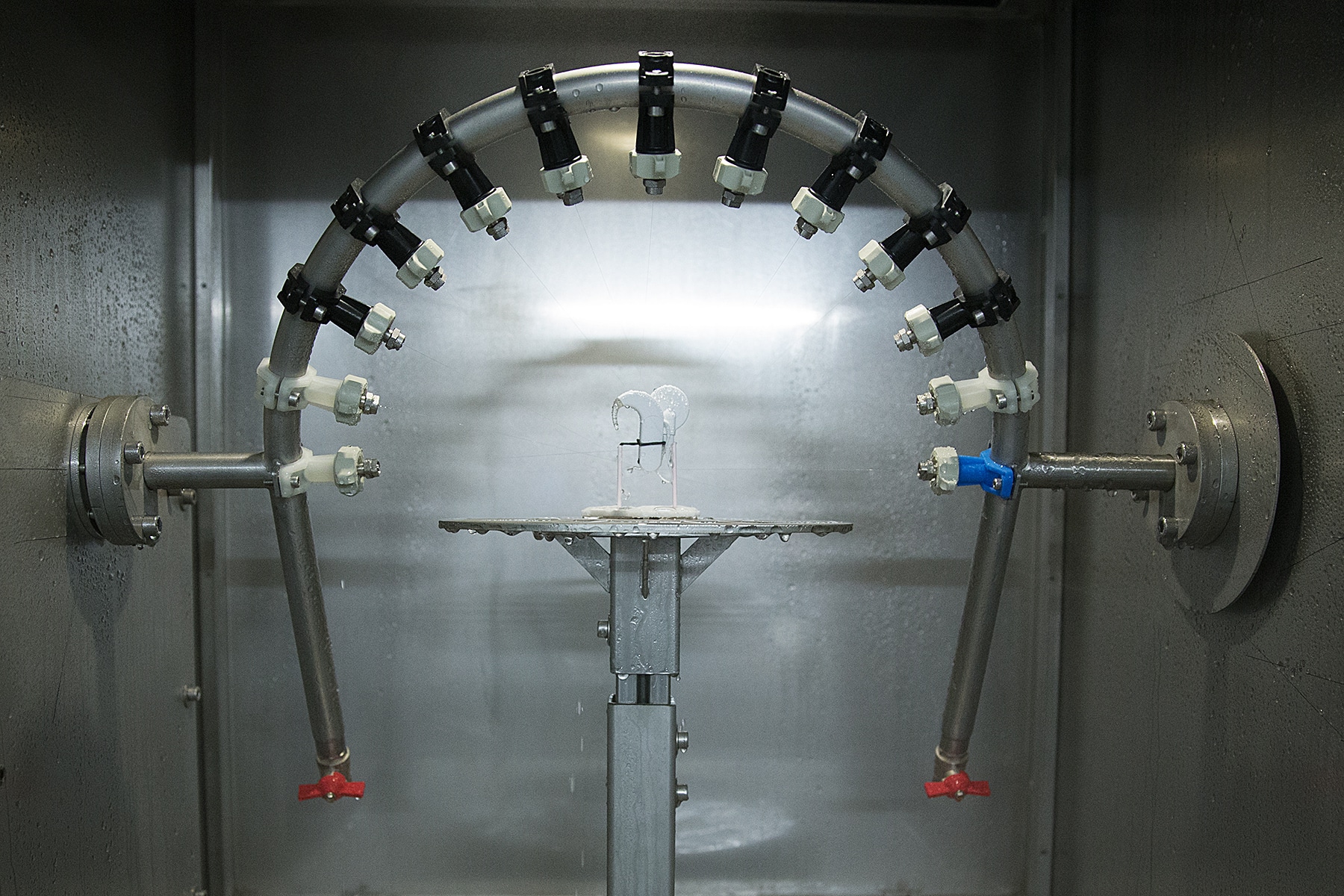
For 10 minutes we sprayed a total of 8.7 liters of water at SONNET. As you can see, the SONNET got totally soaked:
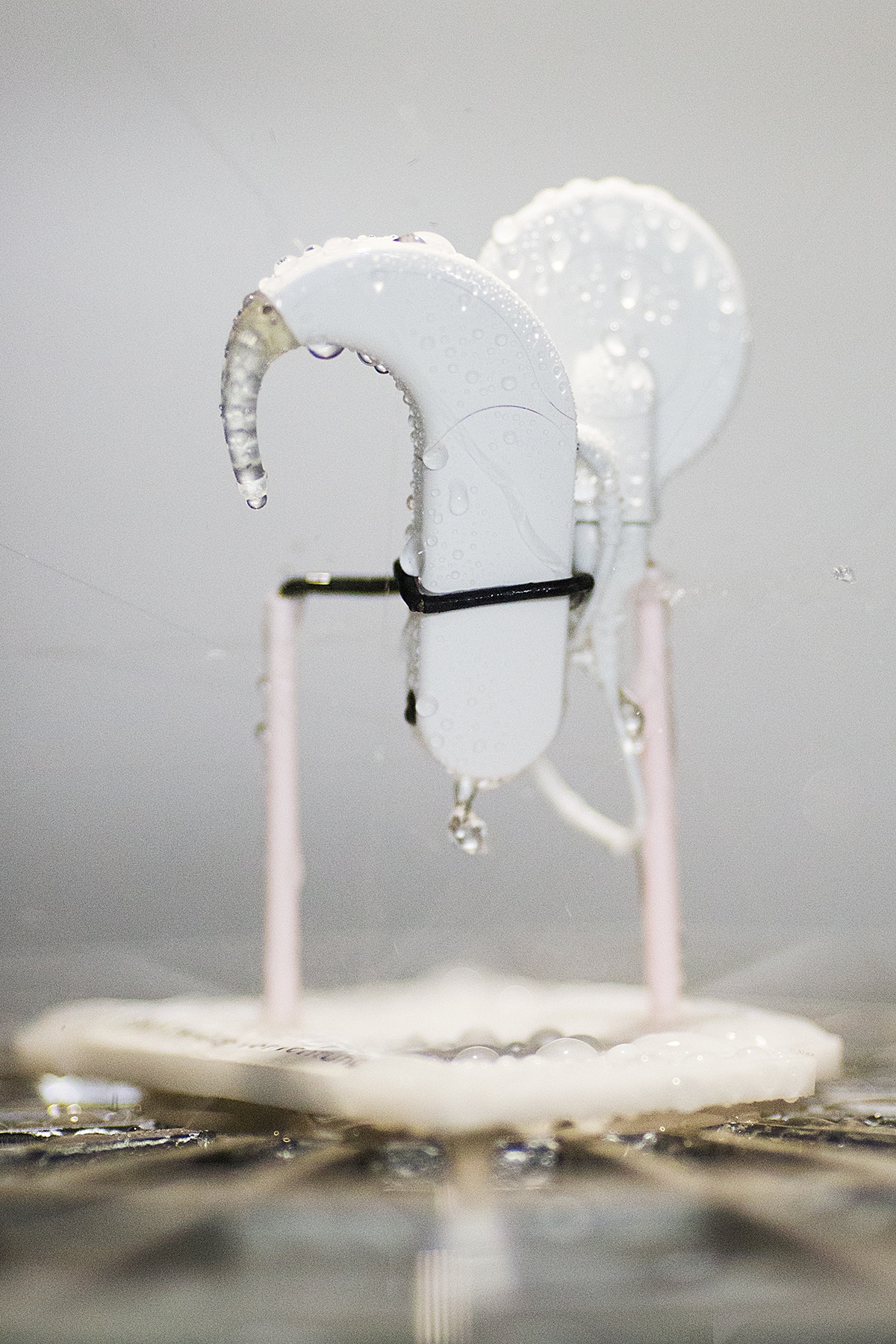
SONNET passed this test and earned an IP water resistance rating of 4.
What Does Water-Resistant or Waterproof Mean For You?
By performing these tests, we’ve shown that SONNET gets a dust resistance rating of 5 and a water resistance rating of 4, which combine to make the overall rating of IP 54.
Of course all of these tests were done in a laboratory and we know it can be hard to compare these lab situations to real life. So, what does an IP 54 rating mean in real life terms?
Does it mean that you can still use SONNET in the rain?
What about if you get all sweaty when you exercise or play sports?
Or what if it’s really humid?
The answers to these questions are easy: “yes”, “yes”, and “yes”. When you’re using SONNET in daily life you can be sure that it’s protected against sweat, rain, and humidity in general. We don’t recommend submerging SONNET in water, but for everyone who wants to hear while swimming we’ve designed WaterWear.
Waterproof: The WaterWear for RONDO
What’s WaterWear? It’s how you can go swimming and hear with a MED-EL cochlear implant audio processor.
WaterWear is a waterproof cover for RONDO. It has been put through rigorous tests like the ones SONNET went through and has also been submerged in four meters of water for two hours, earning it an IP 68 rating. It’s approved for fresh, chlorinated, or salt water. That means when you use it with RONDO you can hear in any type of water even if you’re completely under water.
To see what WaterWear looks like in action, check out Mary Stogiou swimming with her WaterWear for RONDO.
So we hope you liked this glimpse into a few of the many tests that we run on our processors and accessories. And as we said before there are lots of other labs, filled with lots of other tests and machines, and many other testing experts. Let’s face it: at MED-EL, we love our technology. But those are stories for another day.
Did you like this post and want to see more? Sign up to The MED-EL Blog for email updates with every post we make—two per week! Just go to the menu on the right side of this page and enter your email address in the “Get Updates by Email” section.
These tests were performed under controlled conditions by trained testing staff. MED-EL does not recommend that you perform or try to replicate any of these tests on your own.
MED-EL
Was this article helpful?
Thanks for your feedback.
Sign up for newsletter below for more.
Thanks for your feedback.
Please leave your message below.
Thanks for your message. We will reply as soon as possible.
Send us a message
Field is required
John Doe
Field is required
name@mail.com
Field is required
What do you think?
© MED-EL Medical Electronics. All rights reserved. The content on this website is for general informational purposes only and should not be taken as medical advice. Contact your doctor or hearing specialist to learn what type of hearing solution suits your specific needs. Not all products, features, or indications are approved in all countries.
MED-EL


